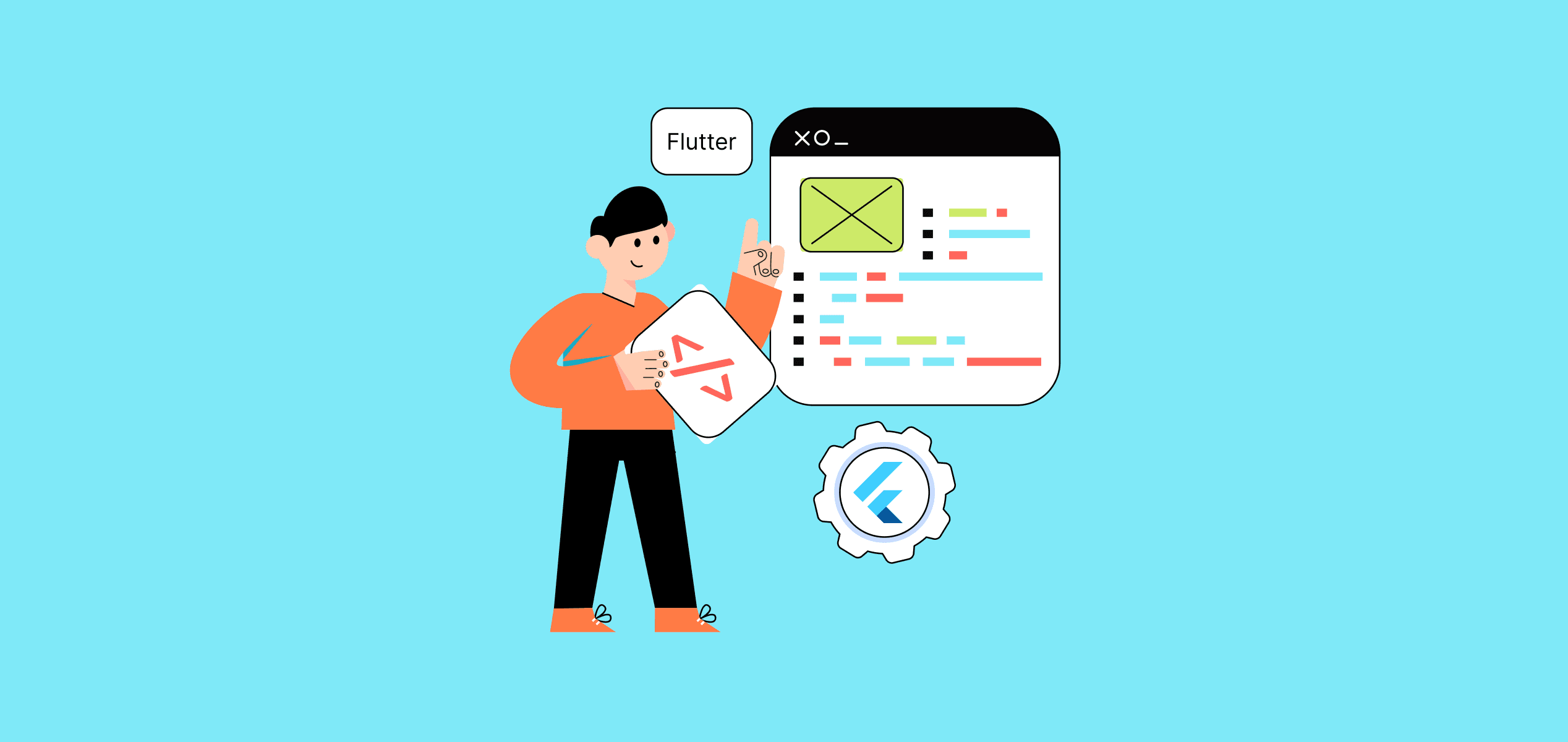
This question is often raised: Is using Flutter for web development worth it?
Of Course, it is! Any web developer who wants to make his work life easier would never say no to Flutter. And why would they? Developers can craft exceptionally well-designed desktop, web, and mobile applications with a single-use codebase.
The foundation of Flutter, i.e., Dart, is known for its excellent programming language, which is formulated by Google. Flutter is highly efficient and easy to use, through which developers can create robust and aesthetically pleasing applications.
The most revolutionary aspect of Flutter is its widgets. Those widgets are one of the fundamental components of its design. Developers can witness fast and smooth development with Flutter’s powerful operations. Flutter for web and mobile development is unmatched!
Now you may wonder, “Is Flutter a Good Option for Web Development in 2025?” Well, let’s deep dive into the detailed discussion below.
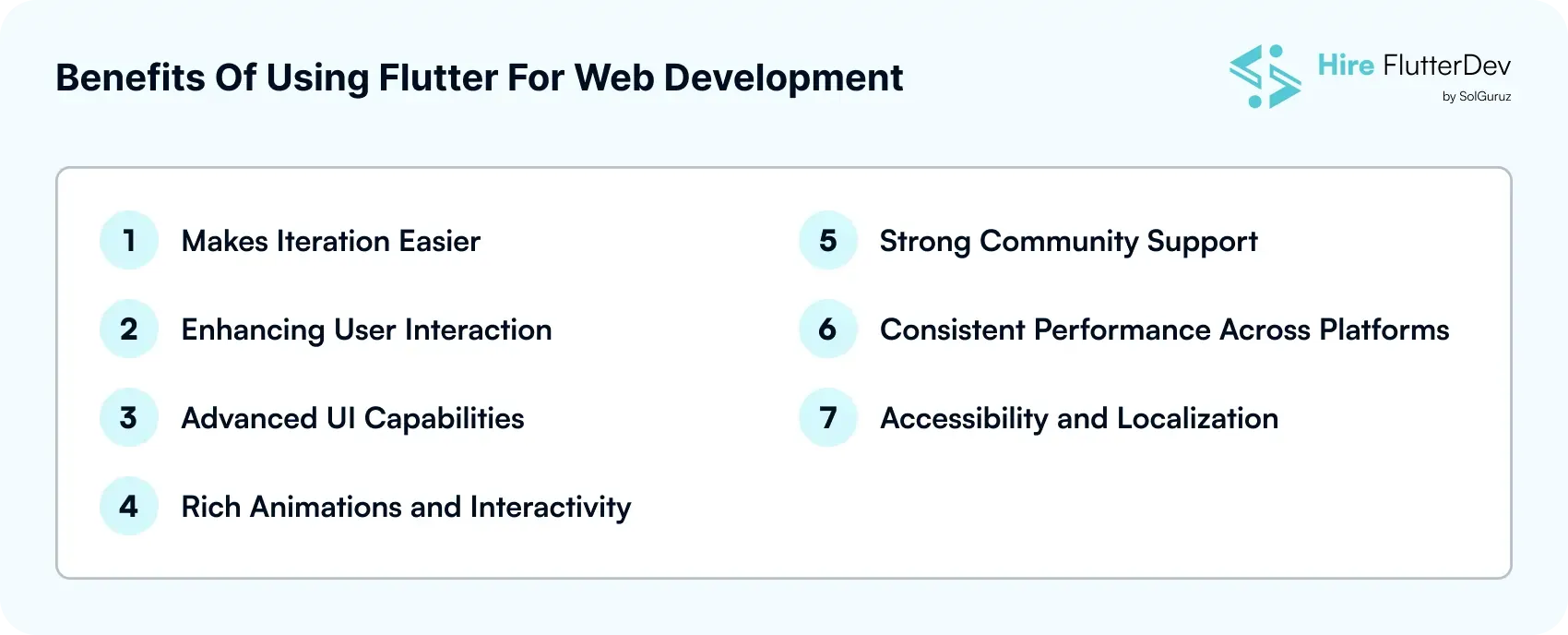
Flutter is a brilliant web development tool. It offers many opportunities for developers. Let’s take a look at the reasons to build a website with Flutter.
Flutter for web developers is like a divine tool! Its hot reload feature allows developers to identify code changes almost instantly. It helps to ensure smooth functionalities for the entire development process.
Poor interaction levels can change the entire face of a web application. However, websites built with Flutter web widget framework possess interactive components that augment user experience significantly.
The vast widget collection of Flutter enables complex yet innovative designs. Its brilliant adaptability is an aspect of attraction for developers. It upgrades custom and brand-consistent user interfaces.
With Flutter’s engine optimization, developers can design unique animations and intuitive components. This provides an amazing user experience without compromising on speed or smoothness.
Flutter web development company has crafted a huge developer community through an array of tools that includes third-party plugins, forums, and extensive documentation. This ecosystem continues with innovation within the Flutter ecosystem.
The consistent, robust engine and design framework make Flutter for web and mobile a dynamic web development tool. Developers do not need to look for other third-party help for any of the factors.
Flutter’s framework is designed with diverse and global accessibility in mind. Therefore, it supports various languages, which allows developers to craft applications for international clients.
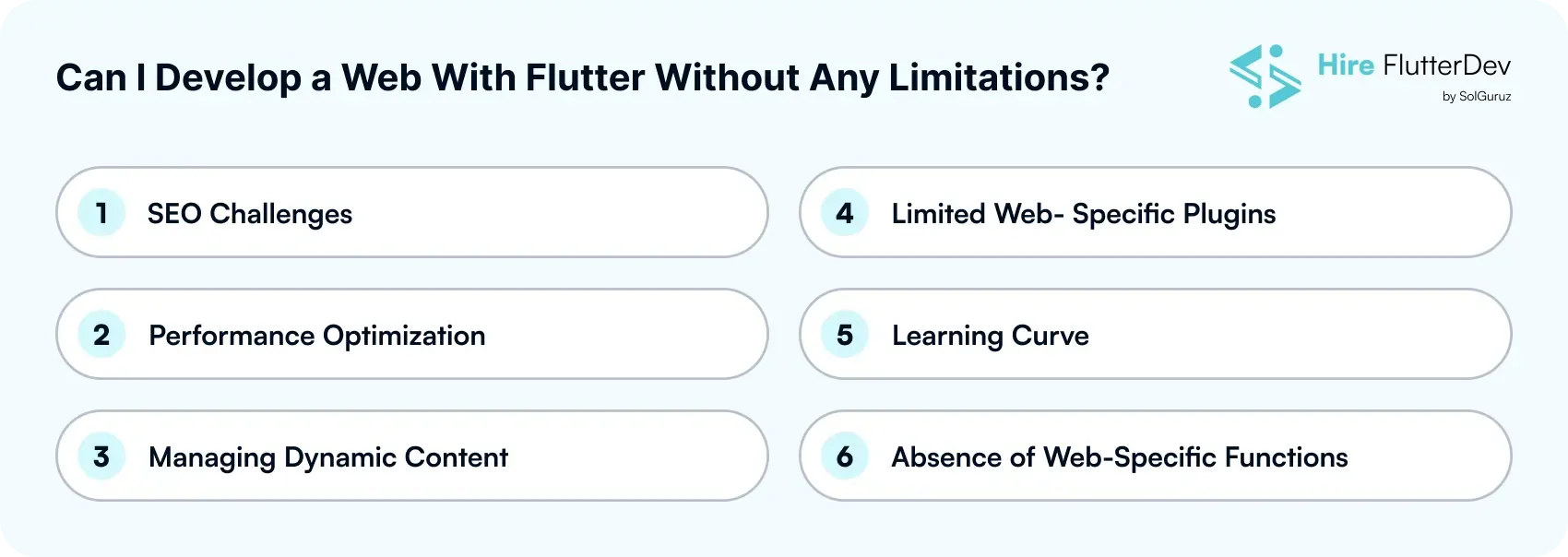
While Flutter is well-known for its advantageous benefits, it’s essential to consider the challenges it may bring. We have assessed the drawbacks of using Flutter for web development. Take a look!
Flutter applications are built utilizing canvas rendering, which may sometimes hinder search engines indexing and ranking. Websites built with Flutter Web may not work seamlessly in all search engines.
Although Flutter is known for its high speed, it can be more difficult to optimize for lower-end devices and slower internet connections, which may require additional effort and testing.
Managing real-time data can also be a bit hectic. Because of the use of additional optimization techniques and third-party solutions, Flutter applications can face issues regarding performance.
As Flutter’s selection of plugins is created exclusively for the web, the usefulness of the web development tool may be limited when compared to various other online frameworks. However, this issue will soon disappear as the Flutter community continues to grow.
While experienced developers can easily grasp Flutter’s workings, those with limited knowledge of programming can find it hard to get challenging with it. This learning curve can affect the development process.
Flutter web application is a relatively modern developer tool that possesses a new web development framework. Thus, it may lack some of the resources that developers are accustomed to using. This makes it hard to develop certain types of applications for programmers.
The goal of Flutter for website development methodology is to create responsive and interactive designs rather than just functioning websites. Flutter for web developers enables the creation of programs that seamlessly adapt to various screen sizes and orientations. Its flexible widgets and layout framework make Flutter one of the most responsive tools.
Furthermore, Flutter offers an unmatched user experience through its widget library. Developers will find highly customizable and aesthetically alluring interactive elements here. Also, the widget selection helps to create a distinctive user interface.
Flutter web developers can create dynamic applications by utilizing its versatile front-end and back-end services. As a programmer, you might wonder how to effectively achieve your end goals. Let’s explore the best practices and learn more about them!
If you are still wondering whether Flutter is worth creating for advanced and upgraded applications, let us guarantee that Flutter for web and mobiles stands among the best web development tools. Though its usefulness depends solely on your requirements, Flutter is well known for offering a strong interface, robust widgets, and amazing user engagement.
Hire Flutter web developers today to leverage Flutter’s reliable and powerful services. If you are looking for any assistance from Flutter Web Development Company, you can get in touch with Hire FlutterDev right away!
Flutter uses one of the most renowned programming languages, Dart, which is backed by Google. Dart is known for its minimalism and effectiveness, which allows the developers to create without any hassle.
Flutter generally offers high speed and effective responsiveness, but there are a few optimization complications in animations and dynamic materials. Developers may face some issues on comparatively lower-end devices.
When debugging a web application or facing any web-specific issues, we recommend using Flutter DevTools. It provides multiple debugging and performance assessment tools along with powerful browser developer tools.
You can easily integrate Flutter with existing web applications by crafting new components or using iframes. This significantly optimizes application compatibility and allows developers to customize it as needed.
Semantic labeling and screen reader support are just two of the accessibility features that Flutter offers. It allows developers to design inclusive web applications that are easily accessible to all users.
Some of the major use cases of Flutter are e-commerce websites and progressive web apps (PWAs) that require fast performance and sophisticated user interfaces.

Paresh Mayani
13 January 2026
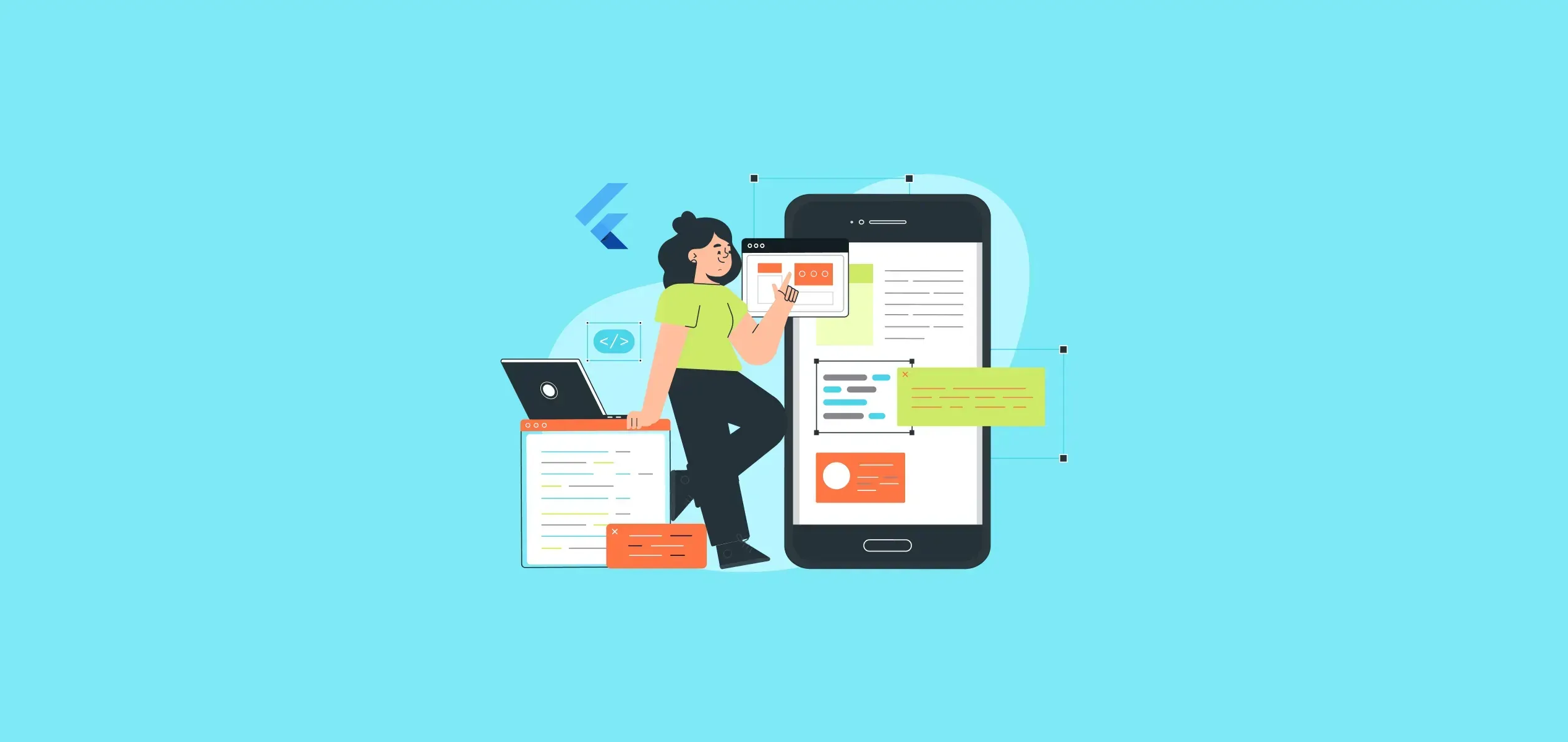
Paresh Mayani
10 January 2026
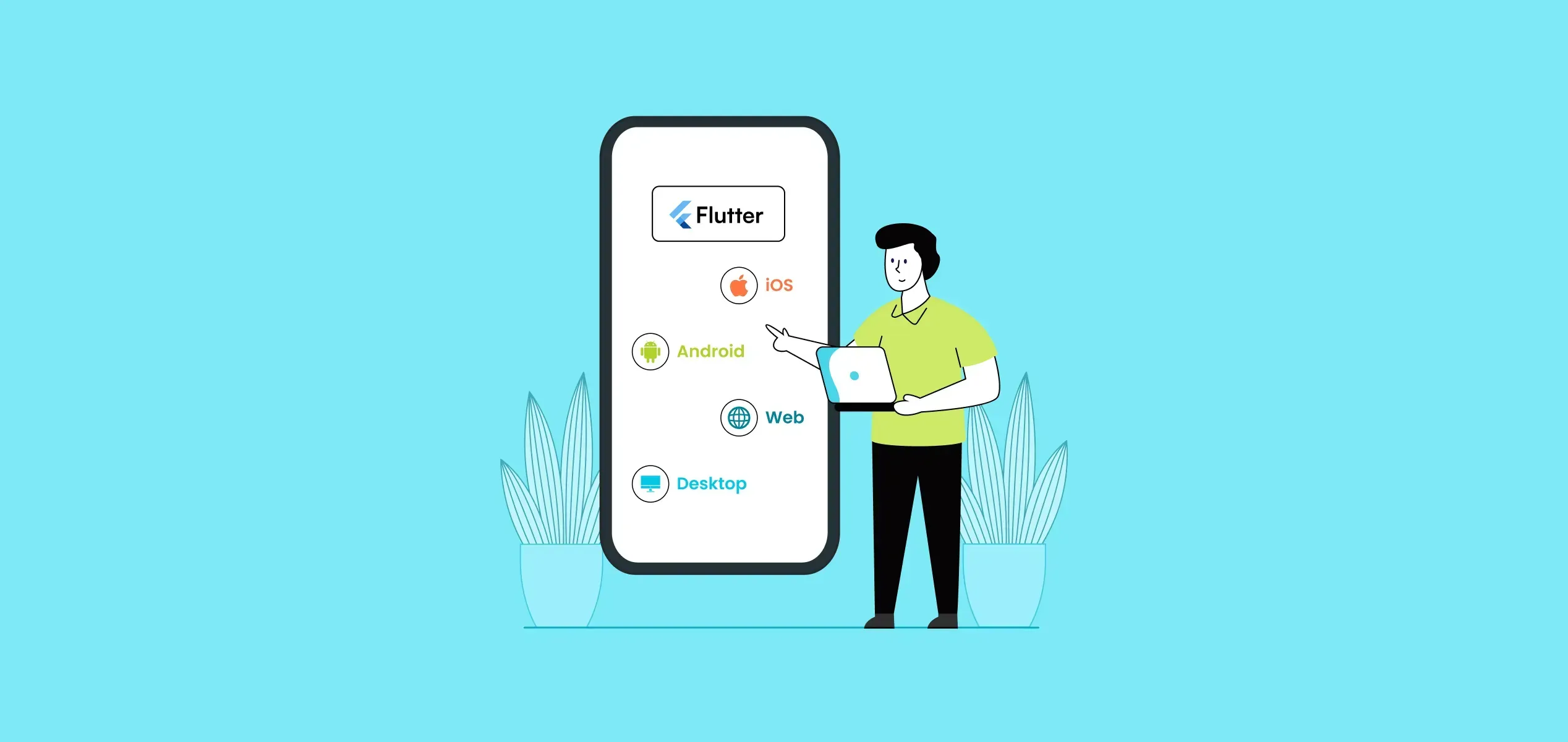
Paresh Mayani
19 November 2025
Let’s begin a collaborative journey together where we craft Flutter applications that set benchmarks for you.